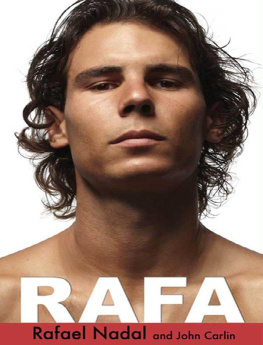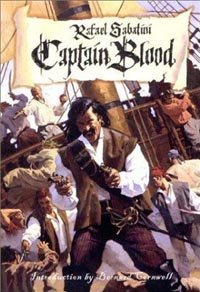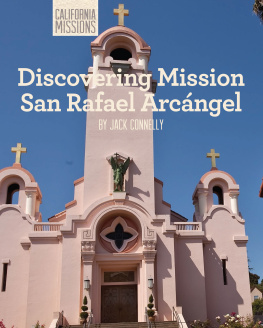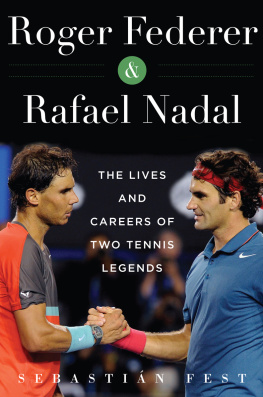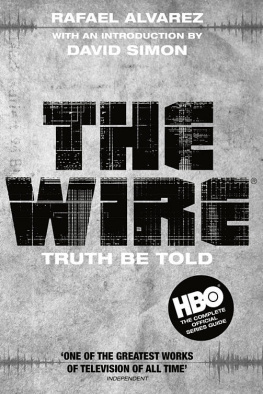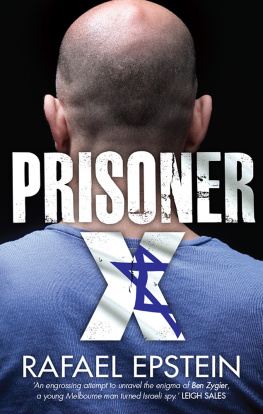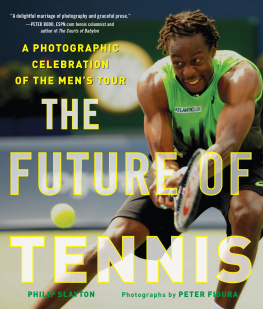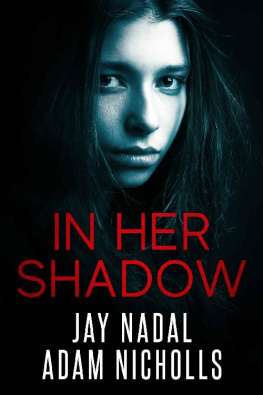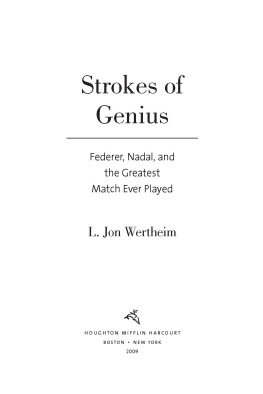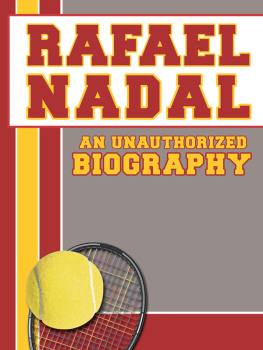Rafael Nadal - Rafa: My Story
Here you can read online Rafael Nadal - Rafa: My Story full text of the book (entire story) in english for free. Download pdf and epub, get meaning, cover and reviews about this ebook. year: 2011, genre: Home and family. Description of the work, (preface) as well as reviews are available. Best literature library LitArk.com created for fans of good reading and offers a wide selection of genres:
Romance novel
Science fiction
Adventure
Detective
Science
History
Home and family
Prose
Art
Politics
Computer
Non-fiction
Religion
Business
Children
Humor
Choose a favorite category and find really read worthwhile books. Enjoy immersion in the world of imagination, feel the emotions of the characters or learn something new for yourself, make an fascinating discovery.
- Book:Rafa: My Story
- Author:
- Genre:
- Year:2011
- Rating:4 / 5
- Favourites:Add to favourites
- Your mark:
- 80
- 1
- 2
- 3
- 4
- 5
Rafa: My Story: summary, description and annotation
We offer to read an annotation, description, summary or preface (depends on what the author of the book "Rafa: My Story" wrote himself). If you haven't found the necessary information about the book — write in the comments, we will try to find it.
Rafa: My Story — read online for free the complete book (whole text) full work
Below is the text of the book, divided by pages. System saving the place of the last page read, allows you to conveniently read the book "Rafa: My Story" online for free, without having to search again every time where you left off. Put a bookmark, and you can go to the page where you finished reading at any time.
Font size:
Interval:
Bookmark:

 RAFA RAFAEL NADAL and John Carlin Contents Cast of Characters CHAPTER 1 - THE SILENCE OF THE CENTRE COURT Clark Kent and Superman
RAFA RAFAEL NADAL and John Carlin Contents Cast of Characters CHAPTER 1 - THE SILENCE OF THE CENTRE COURT Clark Kent and Superman
Because what I battle hardest to do in a tennis match is to quiet the voices in my head, to shut everything out of my mind but the contest itself and concentrate every atom of my being on the point I am playing. If I made a mistake on a previous point, forget it; should a thought of victory suggest itself, crush it. The silence of the Centre Court is broken when a points done, if its been a good pointbecause the Wimbledon crowds can tel the differenceby a shock of noise; applause, cheers, people shouting your name. I hear them, but as if from some place far off. I dont register that there are fifteen thousand people hunched around the arena, tracking every move my opponent and I make. I am so focused I have no sense at al , as I do now reflecting back on the Wimbledon final of 2008 against Roger Federer, the biggest match of my life, that there are mil ions watching me around the world.
I had always dreamt of playing here at Wimbledon. My uncle Toni, who has been my coach al my life, had drummed into me from an early age that this was the biggest tournament of them al . By the time I was fourteen, I was sharing with my friends the fantasy that Id play here one day and win. So far, though, Id played and lost, both times against Federerin the final here the year before, and the year before that. The defeat in 2006 had not been so hard. I went out onto the court that time just pleased and grateful that, having just turned twenty, Id made it that far.
Federer beat me pretty easily, more easily than if Id gone out with more belief. But my defeat in 2007, which went to five sets, left me utterly destroyed. I knew I could have done better, that it was not my ability or the quality of my game that had failed me, but my head. And I wept after that loss. I cried incessantly for half an hour in the dressing room. Tears of disappointment and self-recrimination.
Losing always hurts, but it hurts much more when you had your chance and threw it away. I had beaten myself as much as Federer had beaten me; I had let myself down and I hated that. I had flagged mental y, I had al owed myself to get distracted; I had veered from my game plan. So stupid, so unnecessary. So obviously, so exactly what you must not do in a big game. My uncle Toni, the toughest of tennis coaches, is usual y the last person in the world to offer me consolation; he criticizes me even when I win.
It is a measure of what a wreck I must have been that he abandoned the habit of a lifetime and told me there was no reason to cry, that there would be more Wimbledons and more Wimbledon finals. I told him he didnt understand, that this had probably been my last time here, my last chance to win it. I am very, very keenly aware of how short the life of a professional athlete is, and I cannot bear the thought of squandering an opportunity that might never come again. I know I wont be happy when my career is over, and I want to make the best of it while it lasts. Every single moment countsthats why Ive always trained very hardbut some moments count for more than others, and I had let a big one pass in 2007. Id missed an opportunity that might never come again; just two or three points here or there, had I been more focused, would have made al the difference.
Because victory in tennis turns on the tiniest of margins. Id lost the last and fifth set 62 against Federer, but had I just been a little more clearheaded when I was 42 or even 52 down, had I seized my four chances to break his serve early on in the set (instead of seizing up, as I did), or had I played as if this were the first set and not the last, I could have won it. There was nothing Toni could do to ease my grief. Yet he turned out, in the end, to be right. Another chance had come my way. Here I was again, just one year later.
I was determined now that Id learn the lesson from that defeat twelve months earlier, that whatever else gave way this time, my head would not. The best sign that my head was in the right place now was the conviction, for al the nerves, that I would win. At dinner with family and friends and team members the night before, at the house we rent when I play at Wimbledon, across the road from the Al England Club, mention of the match had been off limits. I didnt expressly prohibit them from raising the subject, but they al understood wel enough that, whatever else I might have been talking about, I was already beginning to play the match in a space inside my head that, from here on in until the start of play, should remain mine alone. I cooked, as I do most nights during the Wimbledon fortnight. I enjoy it, and my family thinks its good for me.
Something else to help settle my mind. That night I gril ed some fish and served some pasta with shrimps. After dinner I played darts with my uncles Toni and Rafael, as if this were just another evening at home in Manacor, the town on the Spanish island of Mal orca where I have always lived. I won. Rafael claimed later that hed let me win, so Id be in a better frame of mind for the final, but I dont believe him. Its important for me to win, at everything.
I have no sense of humor about losing. At a quarter to one I went to bed, but I couldnt sleep. The subject we had chosen not to talk about was the only one on my mind. I watched films on TV and only dozed off at four in the morning. At nine I was up. It would have been better to have slept a few hours more, but I felt fresh, and Rafael Maym, my physical therapist, who is always in attendance, said it made no differencethat the excitement and the adrenaline would carry me through, however long the game went on.
Next pageFont size:
Interval:
Bookmark:
Similar books «Rafa: My Story»
Look at similar books to Rafa: My Story. We have selected literature similar in name and meaning in the hope of providing readers with more options to find new, interesting, not yet read works.
Discussion, reviews of the book Rafa: My Story and just readers' own opinions. Leave your comments, write what you think about the work, its meaning or the main characters. Specify what exactly you liked and what you didn't like, and why you think so.

